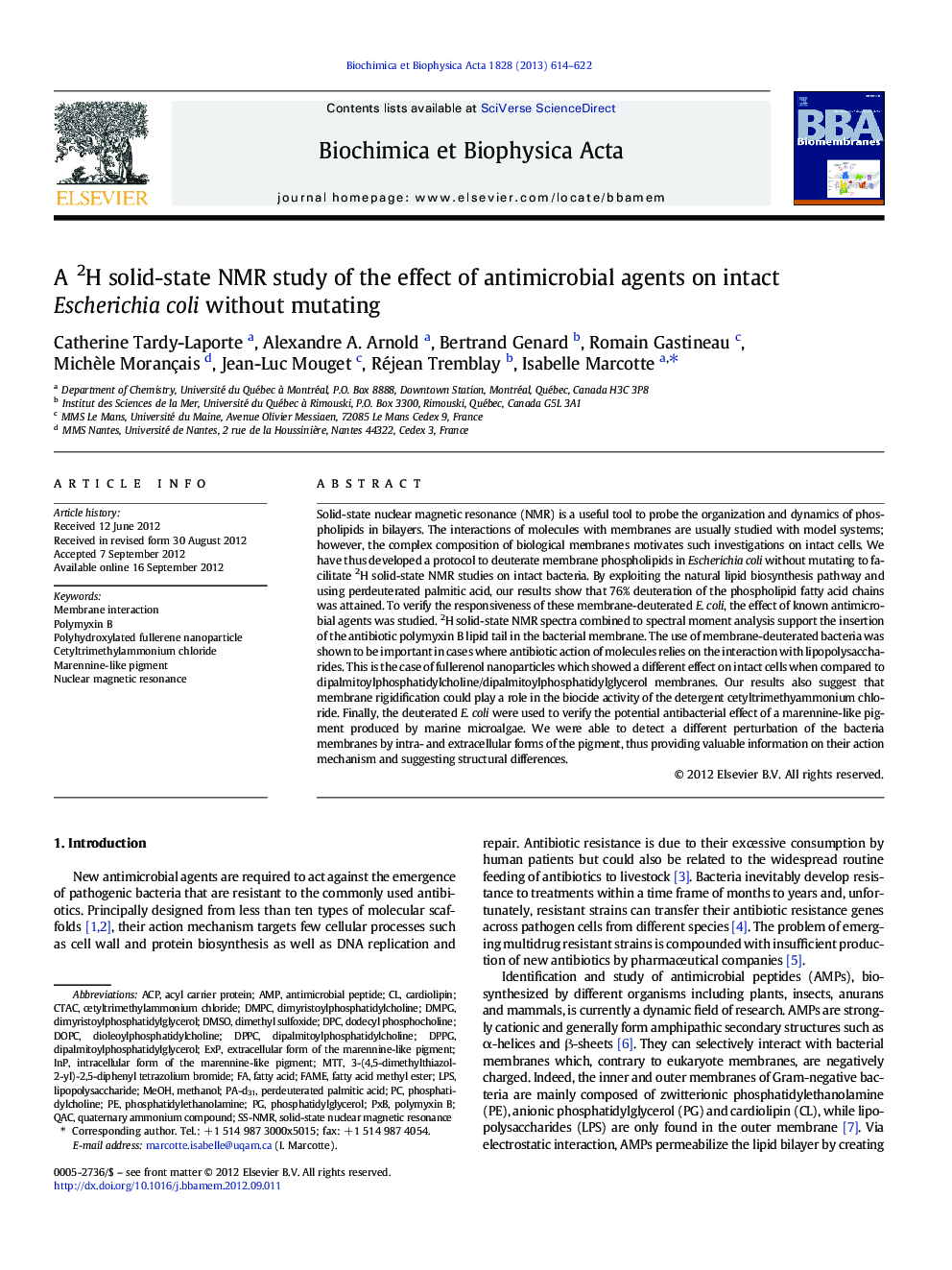| Article ID | Journal | Published Year | Pages | File Type |
|---|---|---|---|---|
| 1944399 | Biochimica et Biophysica Acta (BBA) - Biomembranes | 2013 | 9 Pages |
Solid-state nuclear magnetic resonance (NMR) is a useful tool to probe the organization and dynamics of phospholipids in bilayers. The interactions of molecules with membranes are usually studied with model systems; however, the complex composition of biological membranes motivates such investigations on intact cells. We have thus developed a protocol to deuterate membrane phospholipids in Escherichia coli without mutating to facilitate 2H solid-state NMR studies on intact bacteria. By exploiting the natural lipid biosynthesis pathway and using perdeuterated palmitic acid, our results show that 76% deuteration of the phospholipid fatty acid chains was attained. To verify the responsiveness of these membrane-deuterated E. coli, the effect of known antimicrobial agents was studied. 2H solid-state NMR spectra combined to spectral moment analysis support the insertion of the antibiotic polymyxin B lipid tail in the bacterial membrane. The use of membrane-deuterated bacteria was shown to be important in cases where antibiotic action of molecules relies on the interaction with lipopolysaccharides. This is the case of fullerenol nanoparticles which showed a different effect on intact cells when compared to dipalmitoylphosphatidylcholine/dipalmitoylphosphatidylglycerol membranes. Our results also suggest that membrane rigidification could play a role in the biocide activity of the detergent cetyltrimethyammonium chloride. Finally, the deuterated E. coli were used to verify the potential antibacterial effect of a marennine-like pigment produced by marine microalgae. We were able to detect a different perturbation of the bacteria membranes by intra- and extracellular forms of the pigment, thus providing valuable information on their action mechanism and suggesting structural differences.
Graphical abstractFigure optionsDownload full-size imageDownload high-quality image (204 K)Download as PowerPoint slideHighlights► A protocol was developed to deuterate membrane phospholipids in E. coli without mutating. ► This protocol facilitates 2H solid-state NMR studies on intact bacteria. ► The action mechanism of PxB, fullerenol and CTAC on intact bacteria is studied. ► A different action mechanism is shown for two forms of a microalgal bioactive pigment.
